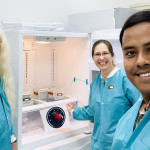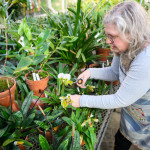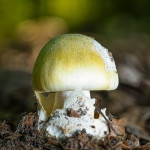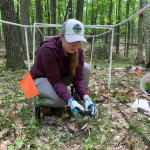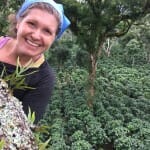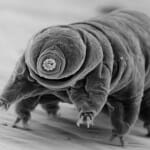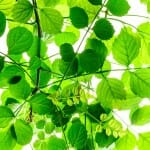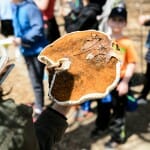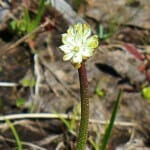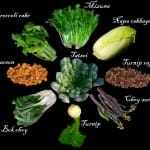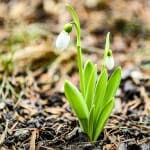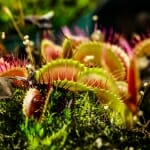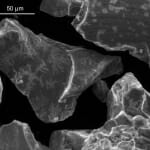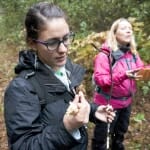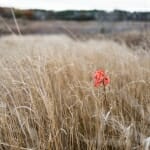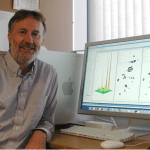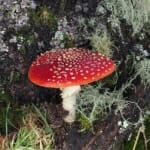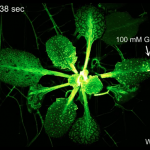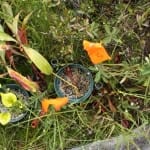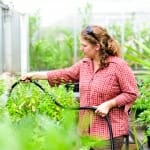Tag Botany
These tomatoes are out of this world… or they will be soon
By sending tomato plants to the International Space Station, UW researchers hope to better understand how plants grow without gravity and whether there are ways to help plants cope with the stressors involved with growing in space flight.
They kept campus going over winter break
Meet some of the workers who make sure that buildings stay warm, residents stay safe, recreational facilities continue to serve the public and plant life continues to thrive even while students are on break.
Death cap mushroom’s invasion success may be linked to newly documented variability of toxin genes
The discovery could help researchers better understand how the toxic fungus is successfully invading California and open the door for new drug discovery pathways.
Climate-stressed trees get a boost from new microbial partnerships
On top of a better understanding of the way trees and microbes work together in a race against climate change, plant-fungi matchmaking may be a boon to plans to reforest the planet.
Lightning strikes shape tropical forests
New UW–Madison research helps establish lightning as an environmental driver that may dictate what trees will make up tropical forests in the future.
New institute will probe biology in the absence of water
The microscopic, hardy tardigrade. Image courtesy of National Park Service They’re microscopic, they have eight legs and they basically resemble tiny, wrinkly bears.
Altered gene helps plants absorb more carbon dioxide, produce more useful compounds
If scientists could add a trait like this to crops or drug-producing plants, it could help them produce more chemicals naturally while reducing greenhouse gases in the atmosphere.
First we tamed turnips. Then we turned them into bok choy and other veggies.
This new research represents the most complete look yet at how humans domesticated the ubiquitous species Brassica rapa, untangling the complex web of domestication.
Spring’s arrival provides reassurance
With the COVID-19 crisis roiling life on campus and all over the world, it's reassuring to see that spring arrived on Thursday, March 19. This year's spring equinox arrived early, and it was welcome.
Greenhouse a refuge from winter woes
There’s a place you can go to escape the snow, the cold and the watery gray of a Wisconsin winter. Not California or Florida, but somewhere right here on campus. The Botany Greenhouse in Birge Hall is an 8,000-square-foot oasis of warmth and greenery. Remember green?
Lifelike chemistry created in lab search for ways to study origin of life
The work is far from jumpstarting life in the lab. Yet, it shows that simple laboratory techniques can spur the kinds of reactions that are likely necessary to explain how life got started on Earth some four billion years ago.
‘Foray’ draws scientists to Wisconsin in search of mushrooms, fellowship
Now in its 44th year, the Smith Lake States Mycological Foray gathers mushroom experts to collect samples, share mycological gossip and debate the evolution of these enigmatic organisms.
Autumn fades on the prairie
The final days of fall bring their own unique colors and textures, stark yet lovely, to the Curtis Prairie at UW–Madison's Arboretum.
Researchers find value in unusual type of plant material
UW-Madison scientists have shown that a recently-discovered variety of lignin, catechyl lignin (C-lignin), has attributes that could make it well-suited as the starting point for a range of bioproducts.
In dangerous fungal family’s befriending of plants, a story of loss
Researchers show that gene loss — not the evolution of new genes — helped drive the fly amanita mushroom into its symbiotic relationship with plants.
An ocean apart, carnivorous pitcher plants create similar communities
Asian pitchers transplanted to Massachusetts bogs can mimic the living communities of natives so well that the pitcher plant mosquito — a specialized insect that evolved to complete its life cycle exclusively in North American pitchers — lays eggs in the impostors, new research shows.
Greenhouses contend with the climate to keep plants growing
The university's greenhouses, which include plants from all over the world, provide study material for botany and horticulture courses and the precisely controlled climates required for research experiments.

